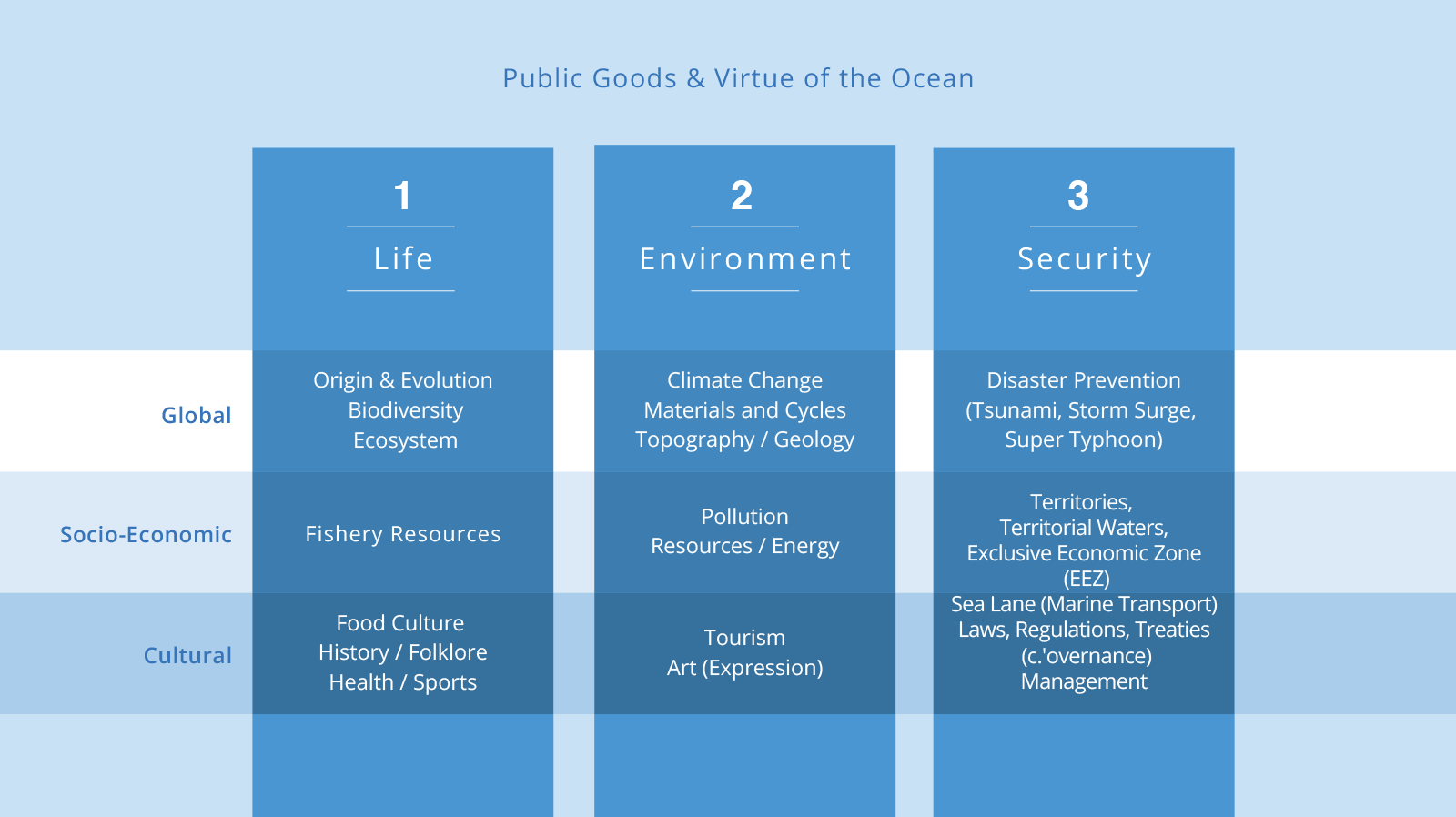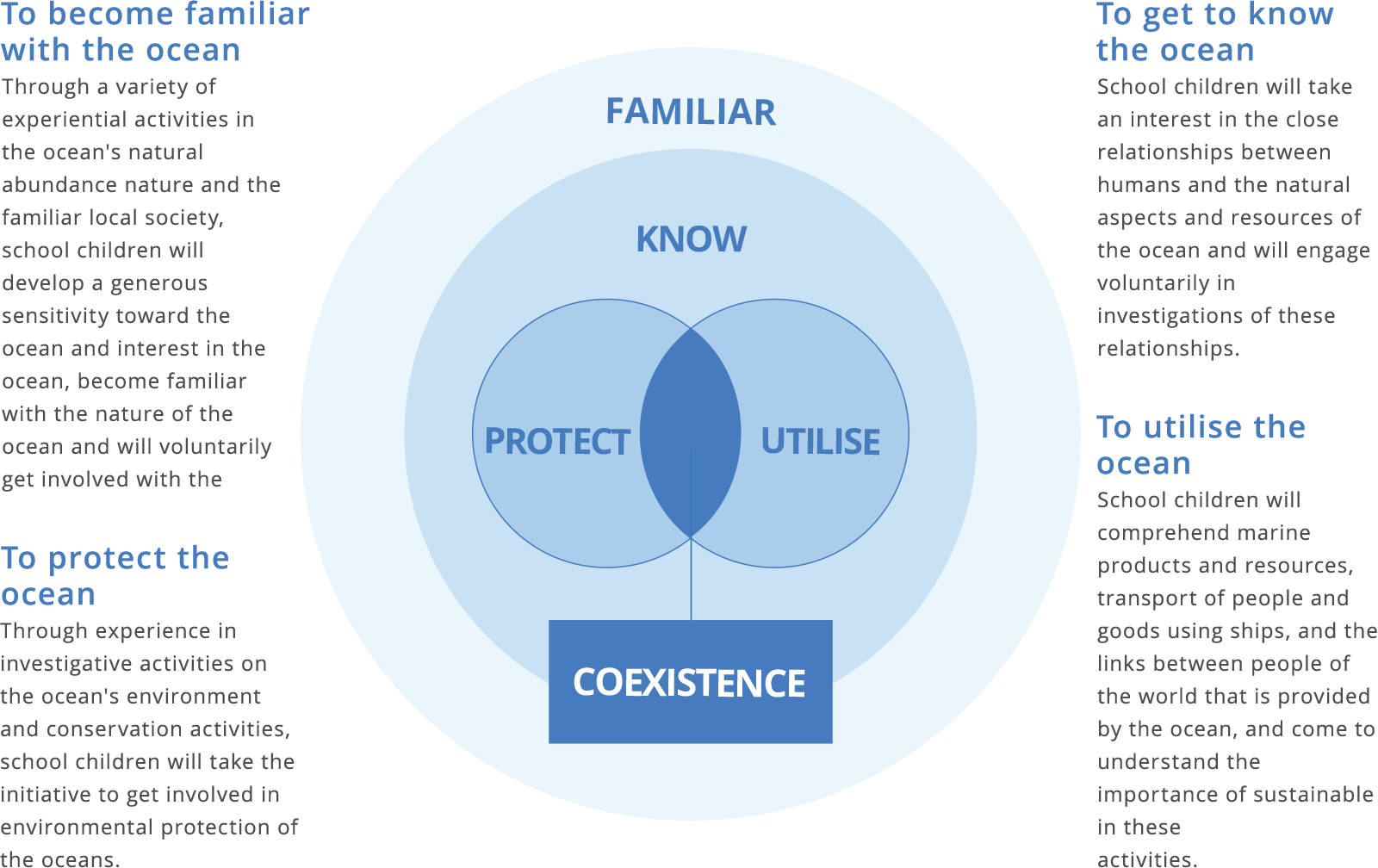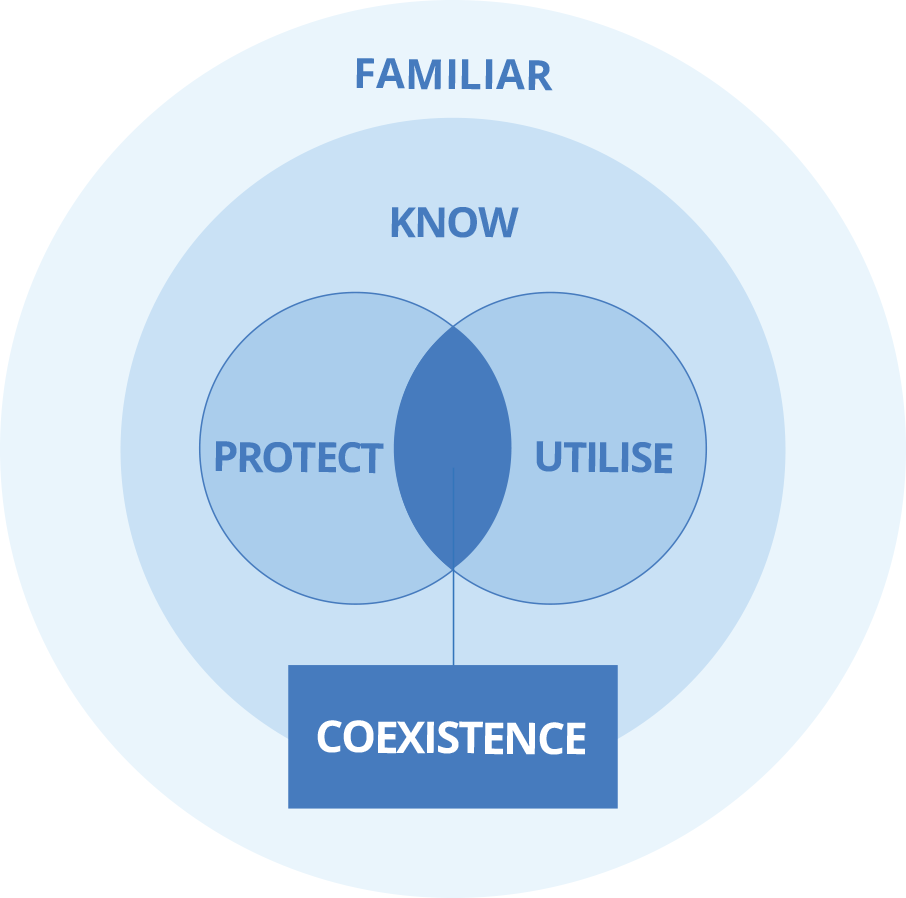Coexistence with the Ocean

In ancient times, we Japanese lived off the benefits of the ocean. Not only the Japanese but mankind with the earth has continued due to the ocean, one may say. Even if one is not aware or cannot see it, is it not the ocean that supports our lives?
What is necessary to cultivate vision of the invisible connection between people and the ocean, is taking into account a specific hands-on learning program while acquiring knowledge of natural science and social science through each subject as well as familiarizing oneself with marine-based literature and idealogy.
To accomplish this, not a systematic knowledge and skills but a hands-on exploration type of education for “simple questions”, not knowledge from a single subject but knowledge of various existing subjects, an “interdisciplinary knowledge education” is necessary. The final goal of ocean and marine education is to practice our ideas and deepen our studies about the ocean, the source of life, to apply “coexisting with the ocean” to our ways of life and to convey the concept of “living better”.
The Three Essentials of Ocean and Marine Education
−Future Aim of Ocean and Marine Education−
At Center for Ocean Literacy and Education, Graduate School of Education, The University of Tokyo (COLE), it stands that the three essentials, “environment”, “life” and “safety” must be addressed as subjects of priority in the development of ocean and marine education upholding the idea of “coexisting with the ocean”, the ocean which is inherently a public sphere and public good. Through pursuing these subjects, “to protect and support existence and life while enjoying the ocean as environment and life”, we will act while considering the essential subjects of ocean and marine education.

About Ocean and Marine Education Efforts
The 28th Article of the Basic Act on Ocean Policy enacted in April 2007 states that in order to deepen the understanding of and interest in the ocean among the general people extensively, measures will be taken to promote the need for education about the ocean in schools as well as society while striving to cultivate human resources to respond to policy issues in universities, etc.
In 2007 while aiming to raise human resources based on the philosophy of the Basic Act on Ocean Policy of the coexistence of the ocean and mankind, the Ocean Policy Research Institute established “a research society for the promotion of marine education in primary education” (Committee Chairman: the then Japanese Educational Research Association (JERA) Chairman, Professor Manabu Sato of the University of Tokyo) consisting of experts from the fields of education and oceanography and proposed “a grand design of marine biology for the 21st century”.
The concept of ocean education (Ocean Policy Research Foundation “Grand Design for Ocean Education in the 21st Century: Ocean Education Curriculum and Unit Plansi”)


- To become familiar with the ocean
- Through a variety of experiential activities in the ocean’s natural abundance nature and the familiar local society, school children will develop a generous sensitivity toward the ocean and interest in the ocean, become familiar with the nature of the ocean and will voluntarily get involved with the ocean.
- To get to know the ocean
- School children will take an interest in the close relationships between humans and the natural aspects and resources of the ocean and will engage voluntarily in investigations of these relationships.
- To protect the ocean
- Through experience in investigative activities on the ocean’s environment and conservation activities, school children will take the initiative to get involved in environmental protection of the oceans.
- To utilise the ocean
- School children will comprehend marine products and resources, transport of people and goods using ships, and the links between people of the world that is provided by the ocean, and come to understand the importance of sustainable in these
activities.
12 fragmented areas (Ocean Policy Research Foundation “Grand Design for Ocean Education in the 21st Century: Ocean Education Curriculum and Unit Plansi”)
-
A.Lifestyles, health and safety
The relationships between daily livingand the ocean, the dargers of the ocean, such as natural disasters, and related measures
-
B.Tourism, leisure and sports
Use of leisure time involving the ocean
-
C.Culture and art
Culture and art with the ocean as the subject matter or setting
-
D.History and folk customs
History, folk customs and religion related to the ocean
-
E.Earth and oceans
Mechanisms of the earth related to the oceans
-
F.Materials
Scientific characteristics of the ocean
-
G.Life
Life forms living in the ocean
-
H.Environment and cycles
Cyclical systems of the ocean’s enviroment and materials
-
I.Resources and energy
Resources and energy provided by the ocean and their utilisation
-
J.Economy and industry
Economic activities using the ocean
-
K.Management
Necessary management for sustained development of the ocean
-
L.International
Cooperation with countries of the world involving the ocean


